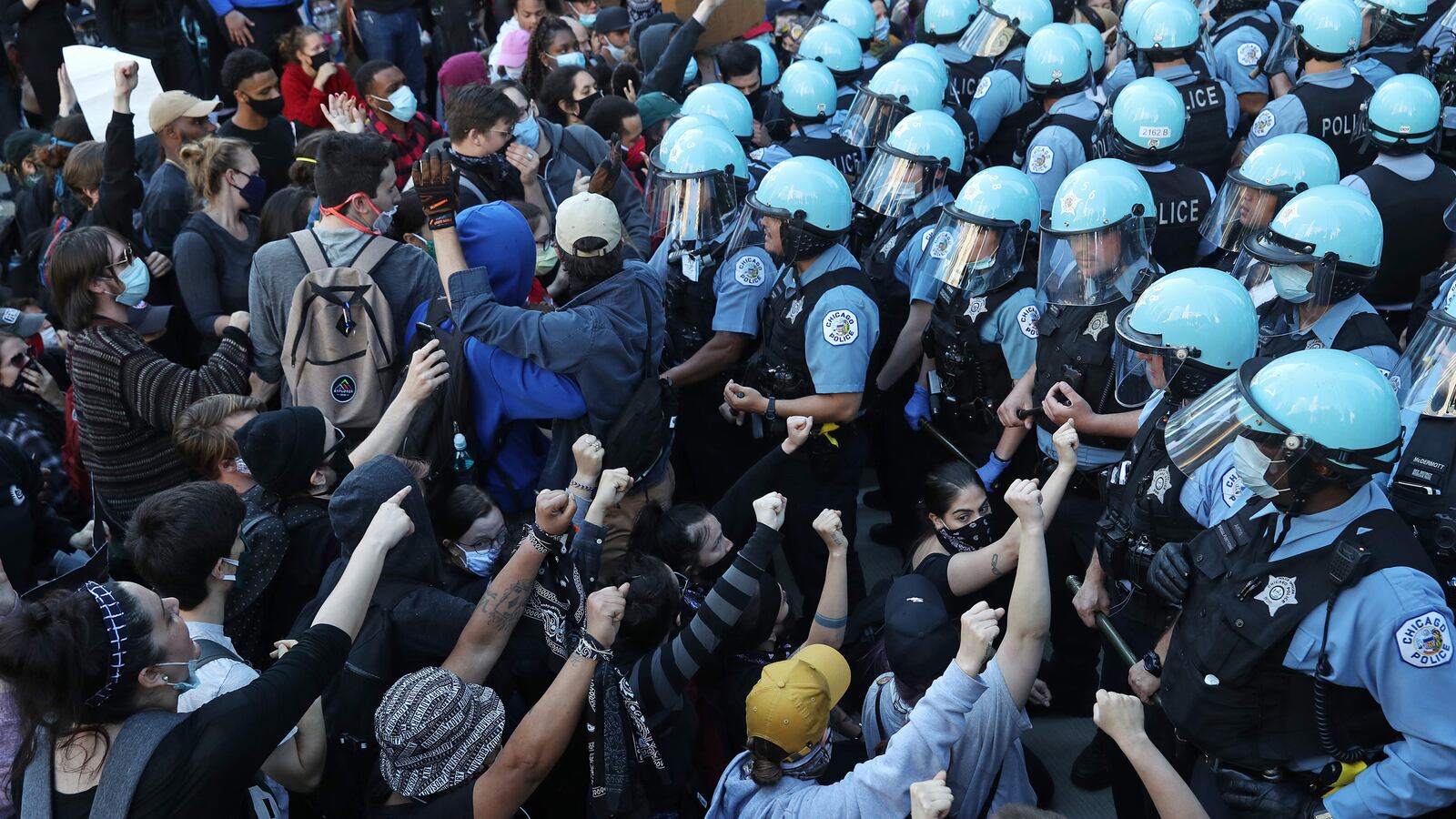Chicago Public Schools will suspend citywide food distribution Monday following a weekend of protest and unrest that led Mayor Lori Lightfoot to lock down the Loop business district and suspend public transit.
With confrontations between protesters and police occurring in neighborhoods into Sunday night, district officials said in a late email to families that meal sites, school buildings, and administrative offices would be closed on Monday, but remote learning would continue.
“This decision was made out of an abundance of caution and in recognition of the potential challenges families and staff could face trying to reach school buildings,” the district said in an email sent at 10:42 p.m. Sunday.
The email came only hours after the district said it would continue to provide meals at school sites. In some neighborhoods, convenience stores and supermarkets were closed on Sunday afternoon, and it was not clear when they could be expected to reopen.
Chicago has steered one of the largest meal distribution programs of any large urban district, handing out millions of free meals across hundreds of campuses since measures to contain the coronavirus shut down school buildings March 17. The district said it would reevaluate the suspension after Monday.
It’s not clear how the protests will affect the mayor’s previous plans to start reopening Chicago restaurants, businesses, and child care centers that closed in March due to the coronavirus pandemic. The city is supposed to move into the next phase of reopening on Wednesday.
Lightfoot imposed a 9 p.m. curfew on Saturday amid protests against the police killing, in Minneapolis, of George Floyd. On Sunday evening, in response to widespread property destruction, Chicago suspended bus and train service until Monday morning and blocked off a portion of the city near downtown.
Earlier Sunday, schools chief Janice Jackson sent a note to families promising that educators would take on “difficult conversations” about modern-day racism in America.
“Racism is all around us, but for too long, our nation has locked it away in the Civil Rights chapter of our history books,” she wrote. “We taught and talked in terms of segregation, bus seating, and Bull Connor, while not giving enough attention and voice to what’s happening today. I’m challenging our community — parents, teachers, students — to call racist behavior out when we see it. We’ve tolerated intolerance for far too long, and the time has come for us to act.”
Jackson, a mother of two, also shared her own worry as a parent of a black son.
“Far too many of us have come to accept fear and pain as part of normal life,” she wrote. “I worry that when he leaves our home to ride bikes with his friends, he will come back to me as a headline, a hashtag, a rallying cry — an Ahmaud, a Breonna, a George” — references to Ahmaud Arbery, Breonna Taylor, and Floyd, three black Americans who were killed in recent months.
The district said it would make resources available to educators Monday morning.
Teachers took to Facebook groups over the weekend to encourage each other to facilitate classroom conversations, acknowledging the difficulty of doing so virtually.
“These are all students who have some context for police brutality,” said Alexander Rolnick, a civics teacher at Back of the Yards College Prep. He cited a sophomore year curriculum about the Chicago movement that won reparations for police torture. His students also followed the case of Laquan McDonald, a Chicago teenager who was killed by police in 2014, as well as the subsequent murder trial of Chicago police officer Jason Van Dyke, he said.
Rolnick, who conducted his last live class with seniors last week, said he reached back out to his students and invited them to join him to talk on Monday. He said he would let them lead the conversation.

